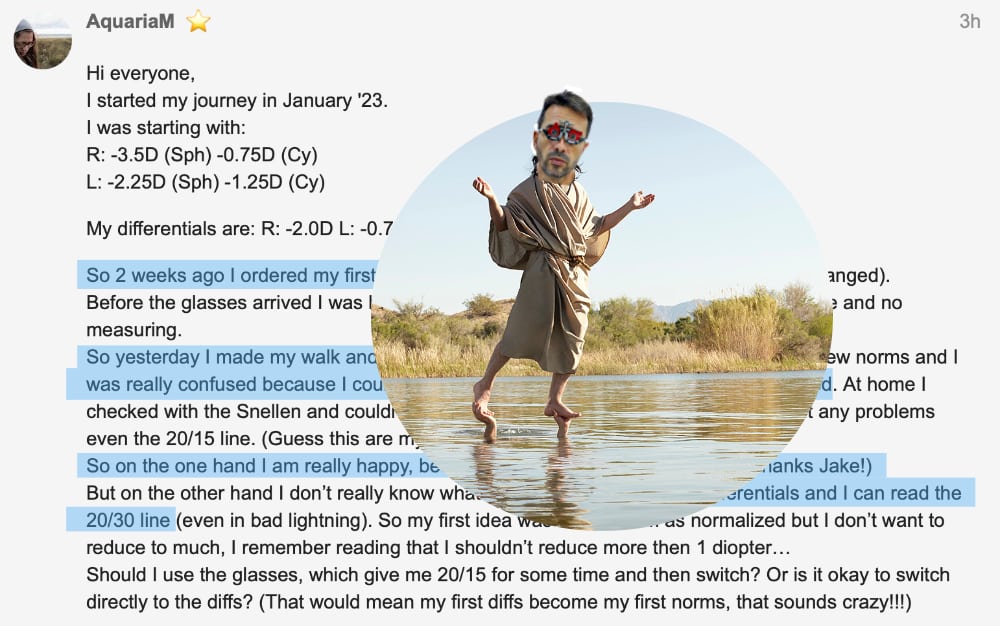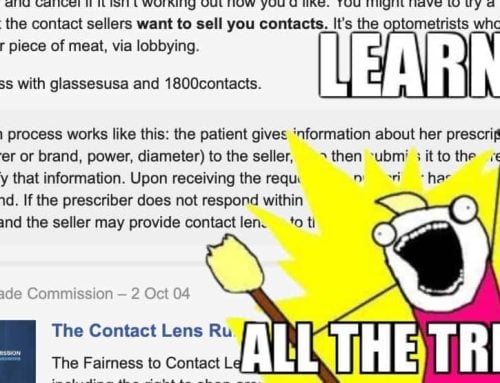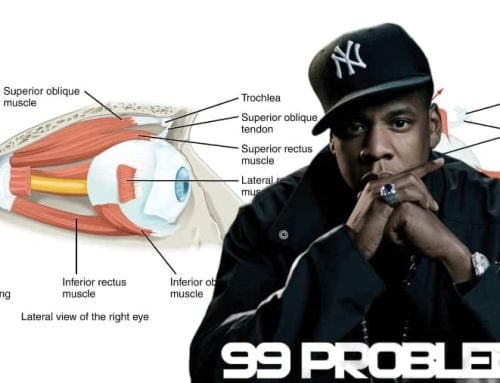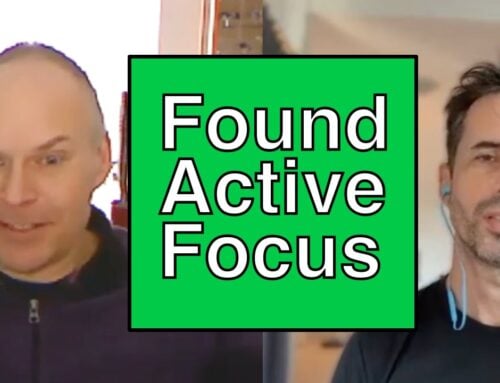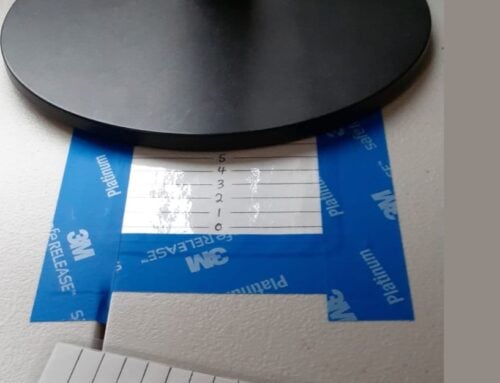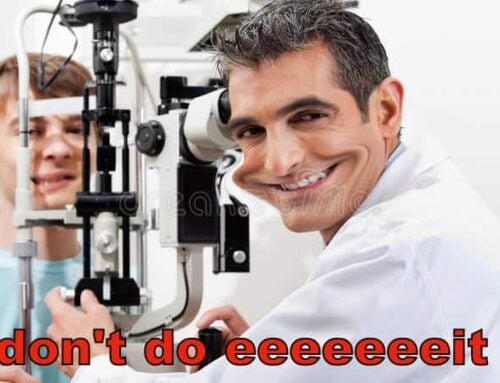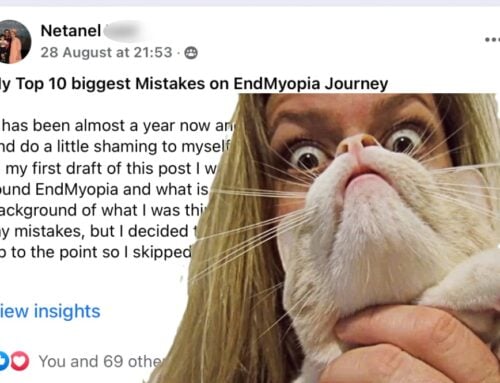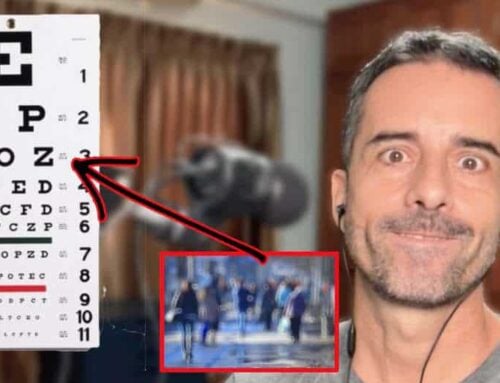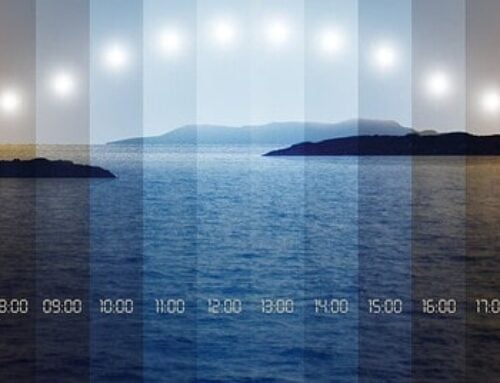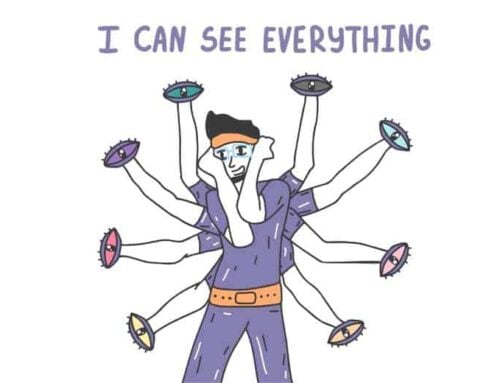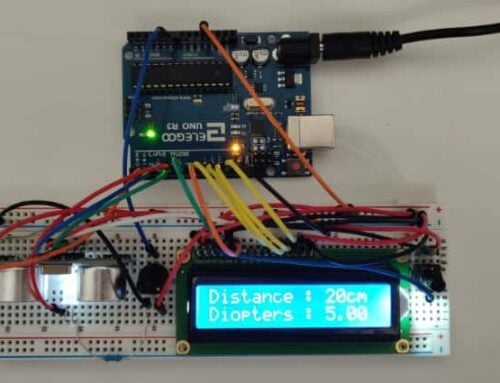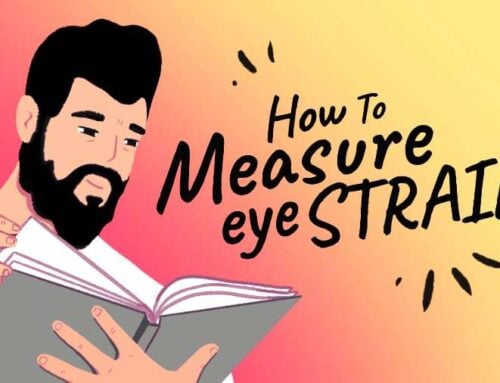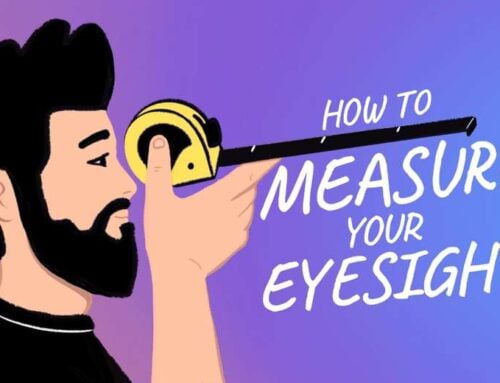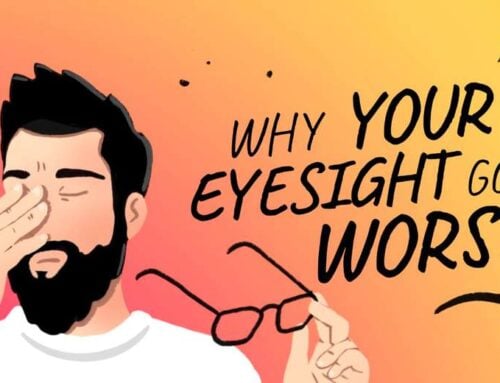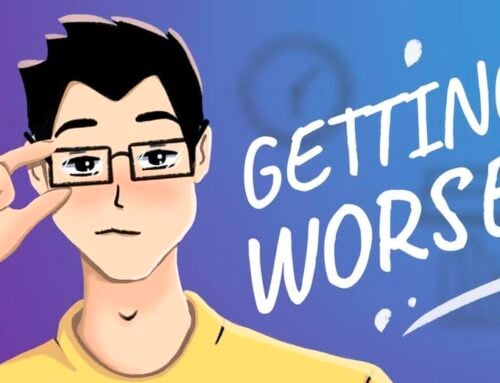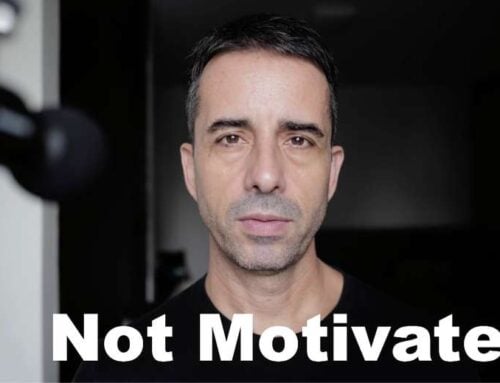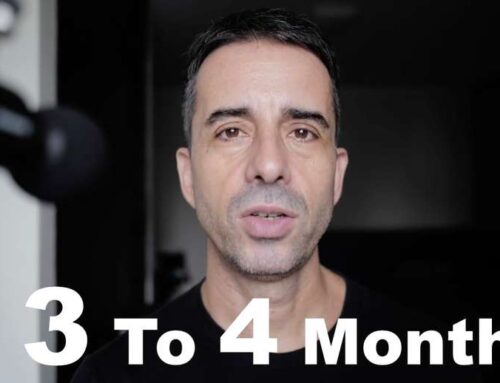Newbie gains.
The thing all new explorers of the endmyopia get excited for, or perhaps feel (very healthy) skepticism about. There are many various claims about amazing experiences making 20/20 gains.
Is endmyopia just another destination of Internet crazy?
(yes)
That’s part of the adventure, darlings. Like a gold prospector in the American west, you’re standing in the river looking for gold in the mud. So much of online far out non-mainstream health stuff is just … mud. And you standing in the murky-cold flowing river that is Google search with wet feet and dashed hopes, looking for something that’s shiny and also real.
Per an old grumbly pretend-guru’s personal experience, good luck. Keep that skepticism high and try not to burn out on experiments.
And with all that tenuously metaphorical preamble out of the way, here’s a bit of a shiny nugget for you (from our Le Meow forum):
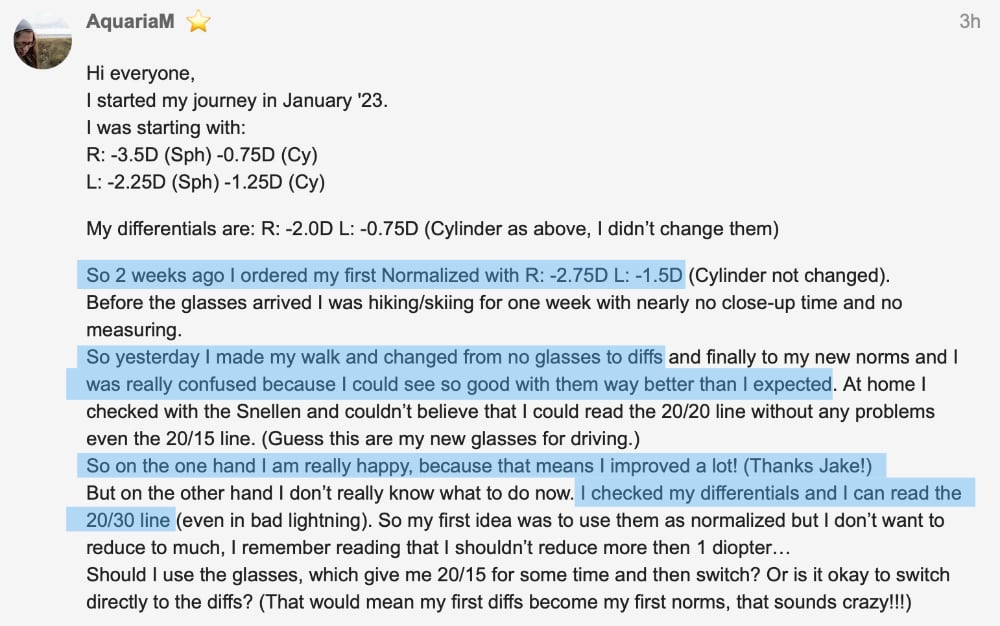
Well, well. What do we have here.
Newbie gains, that’s what. I won’t strain your patience with more gold references here, other than to say that newbie gains are great but not necessarily proof that endmyopia is the real thing.
Here’s what I responded with in the thread, which likely applies to you also (if you experience strong newbie gains):
Here’s what I’d do:
#1 Deep breath, be proud of yourself!
You decided to do something about your eyesight, you researched, spent time, you took a chance on this crazy online idea. You spent money on getting the best possible tool.
In my experience at least, these sort of efforts don’t always pay off. When they do, need to enjoy the moments of things going our way. A win!
#2 Put initial progress in perspective, set reasonable expectations.
A lot of these initial ‘gains’ may be attributed to a combination of over correction of diopters, and reducing your close-up strain, and realizing that you can ‘actively focus’ – rather than just passively seeing things as diopters do all the work.
A bit of more diopters than you needed, a bit less eye strain, a bit more conscious focus.
I love these since they reaffirm that eyesight is actually variable and can be better and gets you in a place to really commit and build good habits. Don’t use them as a benchmark for expectations (that’s how people reduce too fast), rather as confirmation that you can affect your vision.
#3 Take it slow with diopter changes.
Yes you can see much better than expected. Behind the scenes the biology is being challenged. Like going for your first run or workout – feels great, but the body is getting the “oh crap we have work to do” signal.
You’ll perhaps notice a more obvious dropoff in acuity in less than ideal lighting conditions, when you’re tired, etc. Pay attention to all of it. Focus on what new habits you want to build and maintain (we are our habits).
All that said, it’s not uncommon for new participants to successfully reduce up to 1 diopter within the first 90 days (just a very general ballpark of possibility). Don’t go over net 1 diopter regardless, even if you feel you could.
If your current experience is persistent and you feel strongly about being overcorrected, the minimum time before making another adjustment is 2 weeks (to give room for normal fluctuations to be noticed). After that you want to stick with a 3-4 months between reductions, for best results.
There we have it.
Newbie gains is a mixed blessing. Mainly because you can get them lots of ways. You could be doing some “Bates Method” exercises (which usually isn’t what Bates even advocated back in the day) and have similar experiences. You could run into one of the endmyopia copycats and get newbie gains.
By the way … best way to recognize endmyopia copycats: If you find simplified versions of reduced diopters, two sets of focal planes for distance and close-up (a thing definitely pioneered by us), and most commonly promises of much faster gain, via “one weird trick” type of greed traps.
And a better Website than us, without any actual meaningful free content – just a funnel to some $$$ course.
If you end up at endmyopia and get newbie gains, it’s a great boost for confidence and getting you focused. If you end up elsewhere, you might take the inevitable disappointment of only having newbie gains and never more than that to mean that eyesight can’t be improved.
Mixed blessing.
If you did get great starter gains, consider the sage beardly advice above. Make the most of the experience, build habits, and spend time to dive in and really understand how ongoing gains work and how to get them. There is no shortcut or ‘easy way’ when it comes to health and biology tuning. If you’ve succeeded at other personal health adventures, you already know this. Initially tempting and promising, in hindsight a lot of work and ups and downs.
Avoid destinations that are just sales funnels. Look for the downsides and people talking about negative experiences. Anything that doesn’t have detractors or failures you can find, and a healthy ratio of haters … my take is you don’t want to be the one to have to figure out all the ways a thing goes wrong.
Speaking of going wrong: Ten biggest mistakes you’ll make with endmyopia.
And with that bit of Jake-old-man-grumbling … I leave you to go make some more 20/20 gains.
Also here’s more reviews, some even positive.
Cheers,
-Jake

